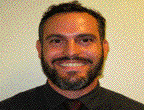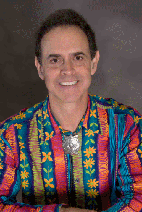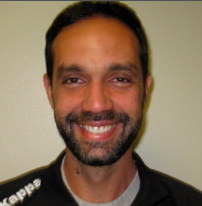 |
||||||||
| Program Overview The Exercise Science Program at the graduate level has a multidisciplinary and interdisciplinary knowledge base and is designed to enable practitioners to bridge the gap between theory, research, and practice. This program prepares masters level students to be exercise scientists for health/fitness clubs, corporate health promotion programs, and rehabilitation settings. The Ph.D. program prepares exercise science researchers, professors, and preventive and/or rehabilitative program directors. Our undergraduate and graduate programs in Exercise Science are the only ones offered in the state of New Mexico, offering a B.S., M.S. and Ph.D. degrees with specialization in Exercise Science. We offer a diversity of courses in exercise science. The Exercise Science laboratories are well-equipped facilities and serve teaching, research and service functions for the university community and the community at-large. They include an exercise testing laboratory, body composition laboratory, and exercise biochemistry laboratory. These laboratories are fully equipped for metabolic testing, computerized muscular fitness assessment, pulmonary function testing, body composition and anthropometric assessment, and enzymatic assays of blood and muscle metabolistes. The Exercise Science program also has a fully-equipped hypobaric chamber for altitude research. Through collaborative arrangements with other research laboratories, dual-energy x-ray absorptiometry, magnetic resonance imaging, and NMR-specroscopy are available. Program Prerequisites Each Master's and Ph.D. degree student is required to satisfy all undergraduate prerequisite coursework and competencies prior to being accepted into the graduate degree programs in Exercise Science. BASIC SCIENCE Anatomy & Physiology - Biol 2210/2210L and Biol 2225/2225L General Chemistry - Chem 1215/1215L and Chem 1225/1225L or equivalent Organic/Biochemistry - Chem 2120 Physics - Phys 1115 MATH and ENGLISH College Algebra - Math 1220 Statistics - Stats 1350 English Composition - Eng 1110 and Eng 1120 Technical and Professional Communication - Eng 2210 or scientific publications Public Speaking - COMM 1130 or documented public speaking experience EXERCISE SCIENCE and NUTRITION Motor Learning - PRPE 2150 Kinesiology - PRPE 2165 Exercise Physiology - PEP 326 Nutrition - Nutr 2110 or equivalent Admission Requirements The criteria for admission to the graduate programs in Exercise Science include the following: 1. UNM Graduate School Application. 2. Letter of Intent. 3. Official transcripts of all undergraduate and graduate level coursework. 4. Satisfactory grades (C or better) in all prerequisite undergraduate coursework. 5. GRE is now optional. 6. Three letters of recommendation. 7. Current professional resume or vita. For Additional Information Contact: Dr. Michael Deyhle (email below) Coordinator, Exercise Science Graduate Program Email: mdeyhle@unm.edu What are the Deadlines for your Application? Fall semester: March 1 (Priority consideration), August 1(Final Deadline) Spring semester: November 1 (Priority consideration), December 15 (Final Deadline) Summer session: April 1 (Priority consideration), May 1 (Final Deadline) Early application is recommended. These dates also apply for financial aid. To Apply to the Graduate Program please go to the UNM HOME PAGE International Student Applications Contact the International Admissions department for materials 505-277-5829 goglobal@unm.edu Fall semester admission: May 1 Spring smester admission: October 1 Summer semester admission: March 1 505-277-5829 Admission Condition: DEFER application to following semester process: A graduate student may be admitted within 21 days of the beginning of the semester in which the student applies (Not after 21 days). If within that 21 day period (or before) the student’s file is incomplete or the student wishes to defer the application, the student should provide the Chair of the Department and the Office of Graduate Studes with a letter requesting to defer admission to the next semester. The student will not have to reapply for admission or pay the $40 application fee if this is completed. Program Offerings Exercise Science Master’s Degree MASTER'S CURRICULUM The Master's degree program is designed to prepare exercise scientists for health/fitness, corporate, and rehabilitation settings. A minimum of 35 credit hours of coursework beyond the B.S. degree is required for this degree. PROGRAM OF STUDY (35 CREDIT HOURS)* Plan I and II EDPY 505 Conducting Quantitative Educational Research (3) or PE-P 507 Research Design in HPER (3) EDPY 511 Introductory Educational Statistics (3) or EDPY 603 Statistical Designs in Education (3) PE-P 500 Exercise Science Seminar (1) PE-P 501 Advanced Exercise Physiology (3) PE-P 502 Designs for Fitness (4) PE-P 503 EKG Interpretation (3) PE-P 508 Exercise Testing and Interpretation (3) PE-P 530 Laboratory Procedures in Exercise Science (3) PE-P 532 Body Composition (3) PE-P 544 Physiology of Resistance Training (3) Subtotal Hours: 29 Plan I PEP 599 Master's Thesis (6 hrs) Plan II PE-P 696 Internship (3) Elective Course options (3 Cr hr: Advisor approval required) *Elective courses from MS PE - Exercise Science (below) or related disciplines (e.g. Nutrition, Biology, Biomedical Sciences, Chemistry, etc.) may be substituted for any required courses that were satisfactorily completed prior to acceptance into the Master's degree program. ALL COURSE SUBSTITUTIONS MUST BE APPROVED BY YOUR MASTER'S POS COMMITTEE. MS PE - EXERCISE SCIENCE ELECTIVES PE-P 527 Metabolic Considerations of Exercise Science PE-P 562 Exercise in Extreme Environments PE-P 579 Sports Physiology PE-P 593 Selected Topics Exercise Science Ph.D. Degree Ph.D. CURRICULUM The Ph.D. degree program is designed to prepare exercise scientists for academic, research, and clinical settings. A minimum of 72 credits and 18 credit hours of dissertation is required for this degree. Required Core Courses: (12 credit hours) EDPY 630 College Teachiung (3) PE-P 541 Ethics Sport/Fitness (3) PE-P 507 Research Design in HPER (3) or EDPY 505 Conducting Quantitative Educational Research (3) PE-P 604 Dissertation Seminar (3) Exercise Science Courses (36 credit hours) PE-P 501 Advanced Exercise Physiology (3) PE-P 508 Exercise Testing and Interpretation (3) PE-P 527 Metabolic Considerations of Exercise Science (3) PE-P 530 Laboratory Procedures in Exercise Science (3) PE-P 532 Body Composition (3) PE-P 544 Physiology of Resistance Training (3) PE-P 562 Exercise in Extreme Environments (3) PE-P 625 Writing for Professional Publication (3) PE-P 627 Professional Considerations in Exercise Science (3) PE-P 628 Cellular & Molecular Mechanisms (3) Exercise Science Electives (6) (Advisor approval required): Note, the Elective is counted in the 36credit HRS for Exercise Science Courses POS committee approval required for substitutions Supporting Areas (24 credit hrs: Advisor approval required) Approved Exercise Science Electives Note: Maximum 12 PE-P credit hrs will be applied PE-P 502 Designs for Fitness (4) PE-P 503 EKG Interpretation (3) PE-P 579 Sports Physiology (3) PE-P 691 Research Problem (3) PE-P 696 Research Internship (3) PE-P 696 Teaching or Clinical Internship (3) Research/Statistics (* = required course) EDPY 511 Intro Educational Statistics (3) EDPY 603 Applied Statistical Design and Analysis* (3) EDPY 604 Multiple Regression Analysis* (3) Research/Statistics Elective (3) Advisor approval required; POS Committee approval required for substitution) Biomedical/Technologies (* = required course) BIOMED 510 Physiology* (3) Electives (3-15 Cr hrs) Advisor approval required; POS Committee approval required for substitution) NUTR/BIOL/BIOM/CHEM/ECE/MSET PE-P 500 Exercise Science Seminar FACULTY Whitley Atkins, Ph.D.
Assistant Professor Hydration and the Prevention of Heat Illness Sex Differences in Thermoregulation Bettering Health Outcomes in a Warming World Email:wcatkins@unm.edu Favio de Castro Magalhas, Ph.D.
Assistant Professor and Exercise Physiology Lab Coordinator Exercise and Insulin Resistance Exercise and Phototherapy Strategies Combined with Exercise to Enhance Effect including Heat/Cold Stress and Hypobaric Conditions Email: fcm@unm.edu
Full Professor Consumer Exercise Product Testing Physical Fitness Assessment & Prescription Email: lkravitz@unm.edu http://www.unm.edu/~lkravitz/index.html
Associate Professor Obesity and Insulin Resistance High Intensity Inerval Training Cold Water Immersion for Exercise Recovery Insulin Signaling Pathways in Skeletal Muscle Heat Exposure in Occupational Physiology Email: amoirm@unm.edu Mike Deyhle, Ph.D.
Exercise-Induced Muscle Damage Cancer-Induced Muscle Wasting The Role of Inflammation and Immune Cells in Healing Email: mdeyhle@unm.edu Adjunct Faculty and Staff Jack Loeppky, Ph.D. Lovelace Research Institutes Pulmonary Physiology Altitude Physiology Virginia Wilmerding, Ph.D. University of New Mexico Dance Science Neuromuscular Performance Kinesiology Email: pett@unm.edu http://www.unm.edu/~lkravitz/Pages/ginny.html |
||||||||
|




